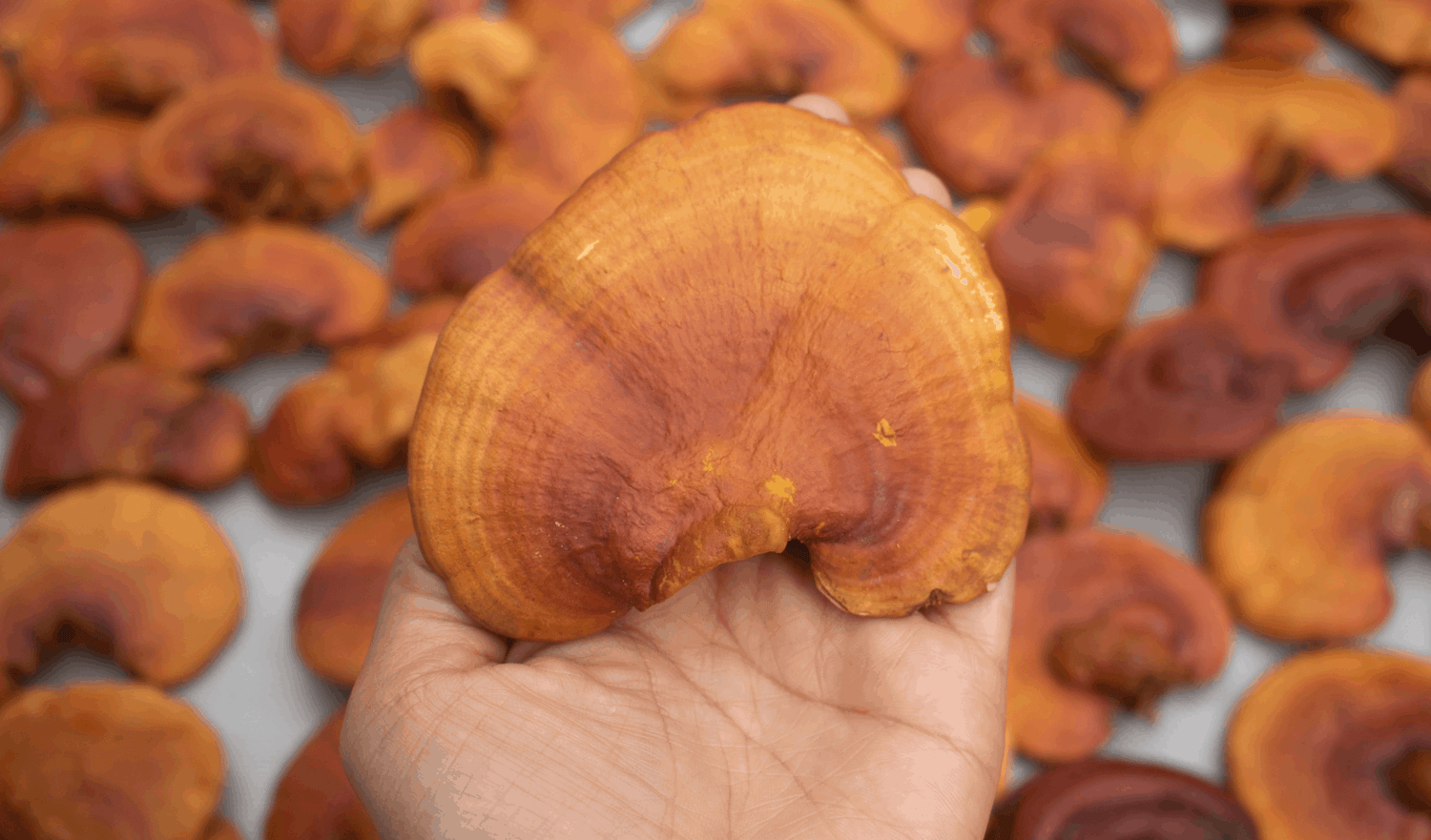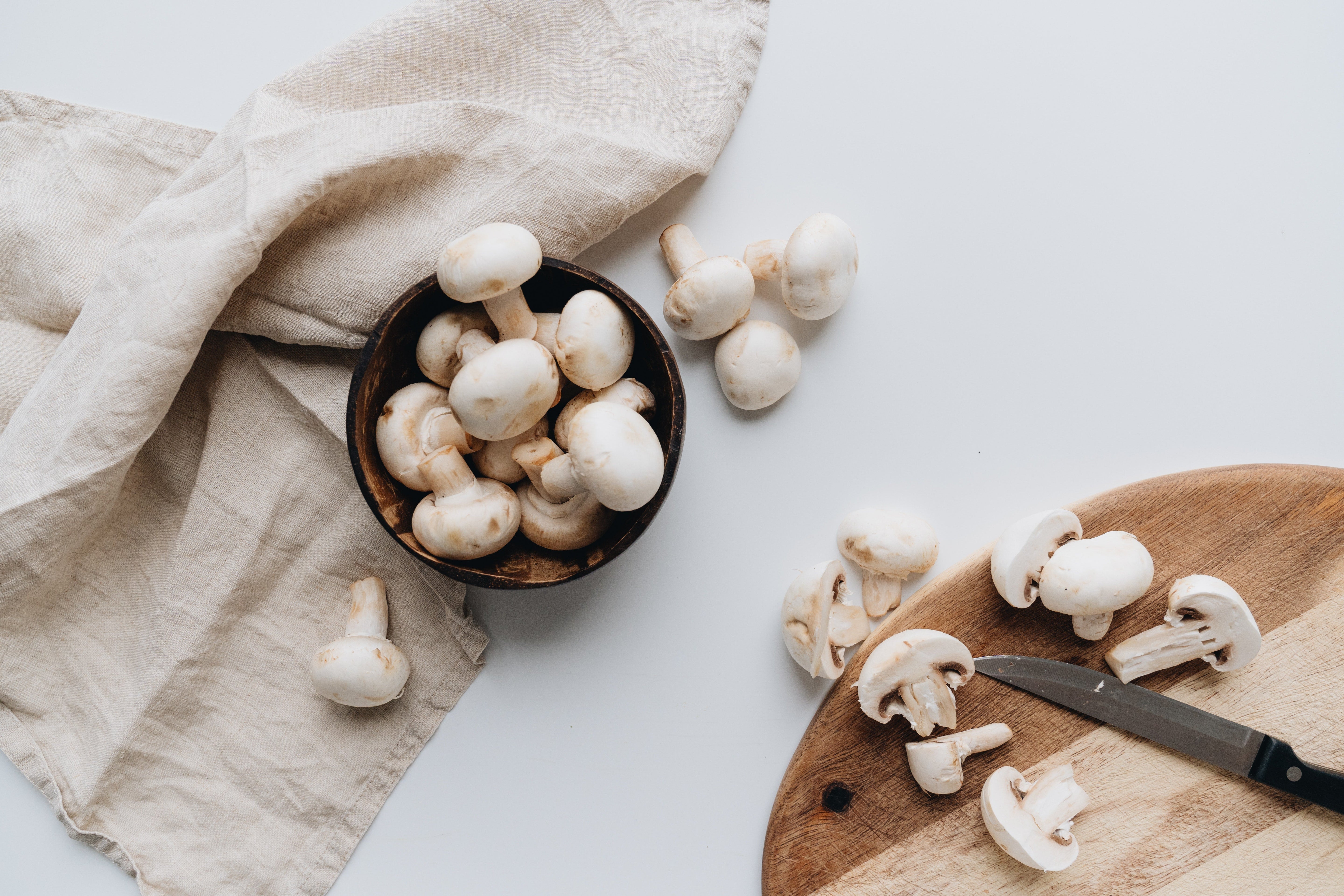Long periods of stress can lead to burnout as pressure mounts from increased demands on your time and energy. Burnout goes beyond normal stress and can significantly impact your health if you don’t take time to recover. When the pressure is on, reishi mushroom (Ganoderma lucidum) may be a potential ally for burnout recovery. Known for its positive effects on sleep, mood, and anxiety, reishi may have the power to relieve the symptoms of burnout and prevent or reverse physiological changes that can hamper your healing. 
Burnout: Definition and Symptoms
Defined as “a state of emotional, physical, and mental exhaustion caused by excessive and prolonged stress,”<1> burnout starts when you’re asked for more time, attention or emotional energy than you can give.<2> At first, you might think you just have to work harder, set aside personal projects, or put off social time until the pressure lets up.<3> But your to-do list only seems to grow until you find yourself feeling disengaged, depressed, and dreary. As you progress from stressed to burned out, it’s common to experience:<4>
- Insomnia
- Muscle aches
- Changes in mood, such as cynicism, detachment, or depression
- Loss of motivation<5>
- Reduced productivity or performance
- Negative thoughts about yourself or others
- Frequent illness
Staying in a state of burnout for too long can lead to more serious problems like high cholesterol, obesity, heart disease, or diabetes. Prolonged burnout is also associated with shorter lifespan—you can literally work yourself to death.<6>
Is “burnout” a medical condition?
Despite these very real symptoms, doctors don’t have a definitive test for burnout.<7> Some studies show common health changes in people with burnout—like higher resting heart rates and elevated morning cortisol levels<8>—but overall results are mixed. What about the idea that stress overtaxes your adrenal glands and causes “adrenal fatigue”? Although it’s a popular explanation for burnout symptoms in natural health circles, adrenal fatigue isn’t recognized as a real condition by the wider the medical community.<9> Scientific evidence of how stress affects hormones is inconsistent, and little evidence exists to support the theory that burnout disrupts your body’s natural stress responses. But these inconsistencies don’t mean that burnout and its effects are myths. Instead, burnout seems to be personalized: The exact symptoms depend on your experiences, temperament, and reactions to stress.<10> No matter what it feels like, there comes a point when you realize you’ve been under stress for too long and need help recovering.
How to Use Reishi Mushroom for Burnout
The properties that make reishi mushroom so popular for stress may also provide relief from the symptoms of burnout. 
Sleep Better with Reishi
Insomnia is the paradox of burnout: Just when you need sleep the most, it often proves elusive. Reishi mushroom contains active compounds called triterpenes and sterols, which may increase calming neurotransmitters like serotonin and promote sleep-regulating pathways in your brain to give you restorative rest.*<11> Reishi also contains adenosine,<12> an inhibitory neurotransmitter that depresses feelings of wakefulness to promote sleep.<13> Adenosine levels increase in your brain throughout the day, which is why you feel drowsy at bedtime. Although no human studies have been done to test adenosine from reishi, it’s possible that this active component of the mushroom could provide additional benefits for insomnia.* Interestingly, cordyceps mushrooms also contain adenosine, so taking both together may have more powerful effects for burnout recovery.* Read more about how reishi and other functional mushrooms can help you sleep: Mushrooms for Sleep (Top 3 Types and How They Work)
Reishi Mushroom for Anxiety
Other active compounds in Ganoderma lucidum can ease the anxiety that comes with feeling overworked and under-rested. Reishi mushroom extracts rich in phenols and flavonoids may have anti-anxiety effects,*<13> and reishi fruiting body and spore extracts might work as well as prescription medications to relieve anxiety symptoms.*<14> These results may be due to how reishi affects the brain. In a study on anxiety in mice, triterpenoids from reishi reversed the activation of microglia, the brain’s resident immune cells. Under normal conditions, microglia perform beneficial functions like clearing out dead or damaged brain cells.<15> But stress can cause microglia to release too many pro-inflammatory compounds,<16> which may damage healthy cells. If stress continues, the prolonged inflammation may lead to neurodegeneration. In other words, burnout can cause brain damage. But as the mouse study showed, taking a reishi mushroom supplement could prevent excessive microglial activation—and therefore preserve brain health.* Check out other ways medicinal mushrooms can help with stress: Daily Stress Got You Down? These 5 Mushrooms Can Help
Reishi and Inflammation
Burnout can increase inflammation throughout your body, not just your brain. Ongoing stress affects how your immune cells respond to the hormones that regulate inflammation, which makes it harder to control natural inflammatory responses.<17> This may be why people with burnout have higher levels of inflammatory markers in their blood.<18> Reishi mushroom supplements appear to interact with several pathways in the body to prevent or reduce inflammation.*<19> The mushroom's active triterpenoids may reduce levels of pro-inflammatory compounds like cytokines and nitric oxide.<20,21> Polysaccharides from reishi may also prevent NF-kB signaling, a process that triggers cytokine production and sets off inflammatory responses.<22> So instead of overreacting to stress, your body maintains or regains healthy immune function.* 
Neurasthenia: A Unique Reishi Mushroom Study
One other study on how reishi might improve burnout symptoms bears mentioning: In 2005, Chinese researchers pitted reishi against a placebo to see whether the mushroom could help people with neurasthenia. If you’ve never heard of neurasthenia, it’s because the term largely dropped out of popular use in the 1930s. Made popular by neurologist George Beard in the 1869, the term “neurasthenia” was used to describe a condition with symptoms like “excessive physical and mental fatigue and muscle weakness.”<23> These symptoms were attributed to exhaustion of energy reserves in the central nervous system<24> thought to be brought on by the stress of modern life, including overwork. The World Health Organization still recognizes neurasthenia as a condition characterized by reduced cognitive function; fatigue after mental exertion; and extreme fatigue, pain, or anxiety after physical exertion.<25> What does this have to do with reishi mushroom? In the Chinese study, participants who received a reishi polysaccharide extract reported significant symptom improvement compared to the placebo group.<26> Although neurasthenia isn’t the same as burnout, the conditions share enough characteristics to suggest that reishi may offer health benefits for both.*
Reishi Mushroom Recipes to Recover from Burnout
If you’re feeling bogged down by burnout and want to see if reishi can help, look for a mushroom supplement prepared using dual extraction. Dual extraction releases water-soluble and alcohol-soluble compounds to provide the full range of potential benefits from polysaccharides, triterpenes, and sterols. Dual-extracted reishi mushroom powder is an easy way to make reishi part of your burnout recovery plan. These quick recipes can add a little fun to your routine—which is essential when you’re feeling “blah” from burnout:
Whether you use it in recipes or take it as a supplement, reishi mushroom can support your body as part of a comprehensive burnout recovery plan that includes rest, stress relief, and reduced workload. Because burnout affects everyone differently, evaluate your own experience and adopt a recovery routine that works for you. 

